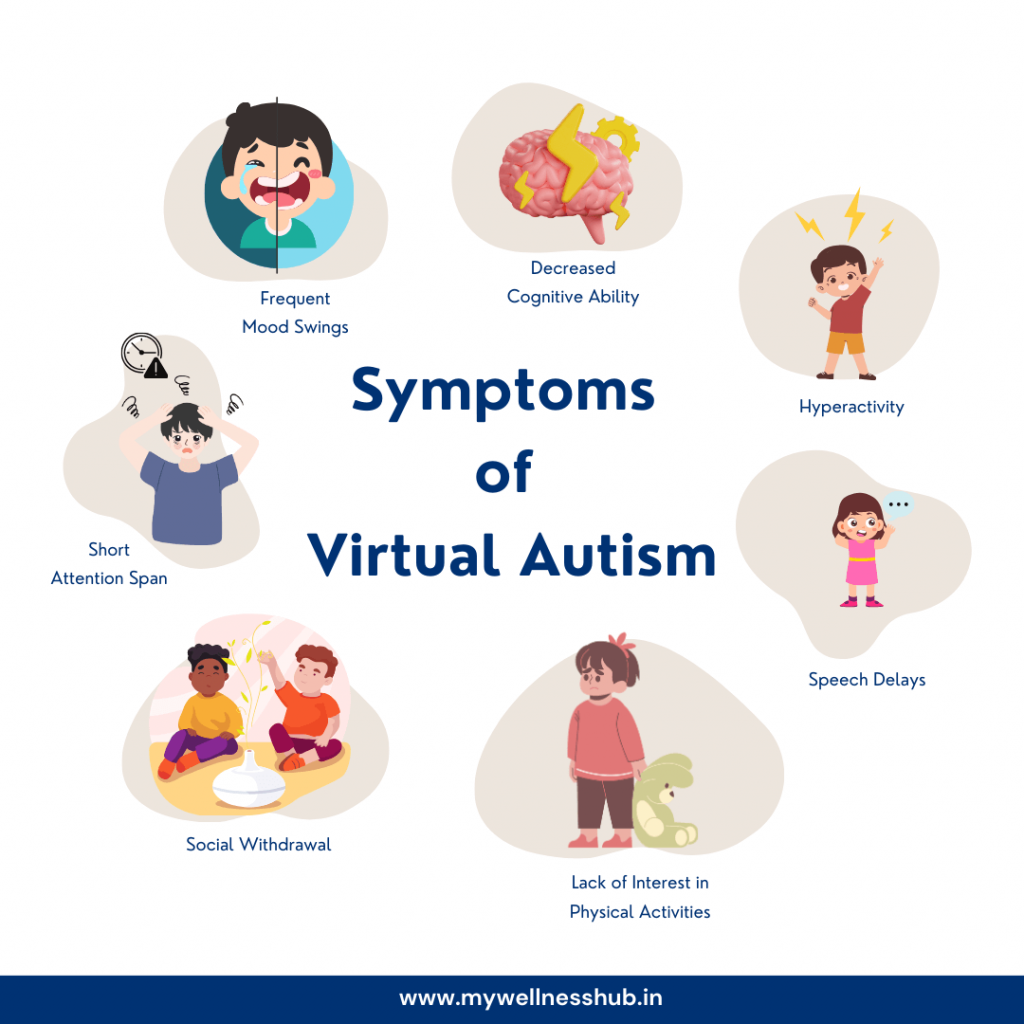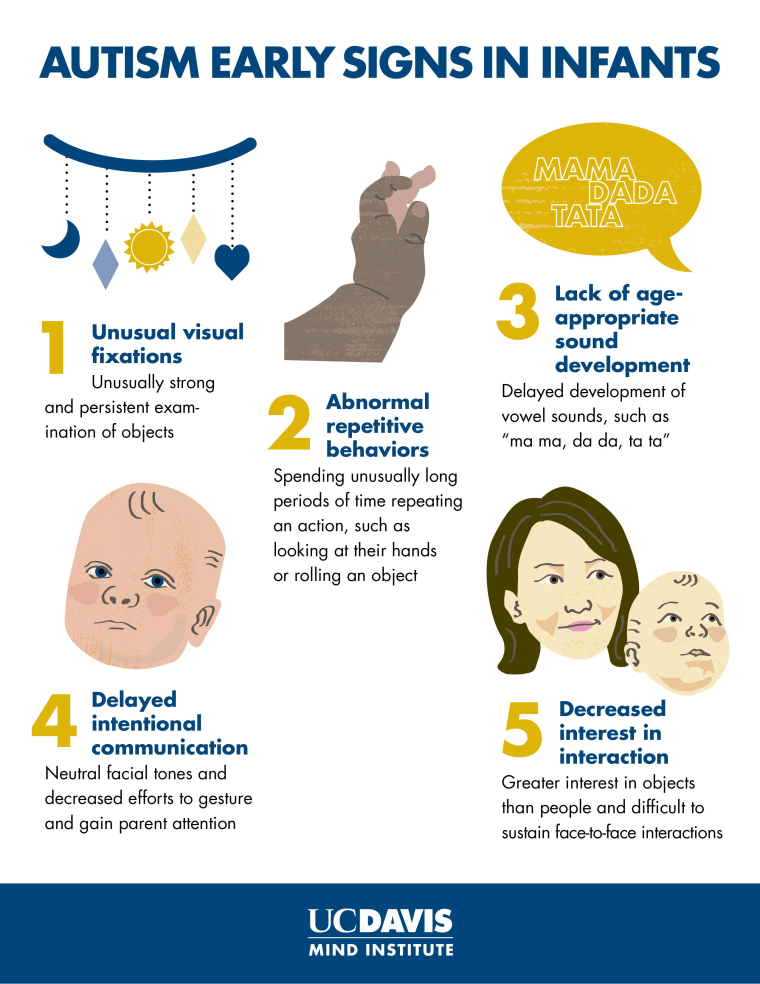Trick Signs and Symptoms to Recognize in Individuals With Behavioral Autism
When you come across a person with behavior autism, recognizing essential indications and signs is crucial. You could notice difficulties in social communications and interaction, along with a solid demand for regimens. Additionally, sensory sensitivities can lead to overwhelming experiences. Recognizing these traits can enhance your support and treatments, yet there's even more to discover regarding just how these habits manifest in day-to-day scenarios. Let's explore what these indicators really resemble.
Challenges in Social Communications
When you engage with someone on the autism range, you may notice they deal with social cues and interaction. These difficulties can make social communications feel frustrating for them. You may see them preventing eye contact or standing as well close or too far during discussions, which can develop misunderstandings. They could not choose up on body movement or faces, making it harder for them to determine how others are really feeling.
When they do engage, they could chat regarding their passions in fantastic information without noticing if you're interested. Understanding these difficulties can aid you come close to interactions with empathy and patience, promoting a much more comfy setting for both of you.
Problem With Verbal and Non-Verbal Communication

Recognizing these signs is necessary, as it aids you far better support and involve with people on the autism spectrum. By understanding their communication challenges, you can foster a lot more purposeful links and offer a much more supportive environment.
Recurring Actions and Routines
Interaction obstacles frequently accompany other indications of autism, such as repeated habits and a strong choice for routines. You might observe that individuals with autism often involve in certain, repeated actions, like hand-flapping, rocking, or duplicating phrases. These behaviors can provide comfort and a sense of control in an usually overwhelming world.
When they adhere to a structured schedule,Routines are equally vital; several individuals thrive. You may discover that changes to these routines can bring about considerable distress. If they have a daily routine of eating morning meal at a details time or complying with a specific route to school, any interruption can trigger stress and anxiety.
Recognizing these patterns aids you recognize their habits and offer support. By accommodating their need for regular and permitting recurring actions, you can develop an extra comfortable environment that reduces their difficulties.
Sensory Sensitivities

Usual Sensory Triggers
Sensory sensitivities can significantly influence daily life for people with autism, as certain stimulations often set off frustrating responses. Usual sensory triggers include loud noises, brilliant lights, and strong smells. Comprehending these triggers can assist you handle your setting much better.
Behavior Actions Clarified
Understanding your behavior responses to sensory level of sensitivities is necessary, as they frequently disclose how you connect with the world. You might also locate yourself looking for specific sensory experiences, like deep stress or silent atmospheres, to aid ground yourself. Recognizing these patterns aids you comprehend your needs far better and can direct just how you interact them to others.
Coping Approaches Summary
Identifying your sensory sensitivities is simply the very first step; now it's time to discover coping strategies that can assist you take care of those experiences efficiently. Beginning by creating a sensory toolkit tailored to your requirements. This could include noise-canceling earphones, fidget playthings, or calming fragrances. Establishing a structured regimen can also offer predictability, reducing stress and anxiety around sensory overload. When you really feel overloaded, take breaks in a silent room to collect yourself. Exercising mindfulness methods like deep breathing can help ground you in the moment. Furthermore, connect your requirements with you could look here those around you; having supportive close friends and family can make a massive difference. Remember, finding what functions finest for you may take some time, so be patient and open to trying brand-new approaches.
Restricted Passions and Focus
While numerous people create a wide range of rate of interests, those with autism frequently demonstrate restricted rate of interests and an intense concentrate on details subjects. You could see that someone with autism can spend hours diving right into their favored subject, whether it's a specific sort of train, a particular motion picture, or a scientific concept. This intense emphasis isn't simply a pastime; it can end up being a central component of their identification and social communications.
You may locate that conversations revolve around these rate of interests, and they might struggle to engage in more comprehensive subjects. By understanding and recognizing these limited interests, you can foster a helpful setting where they feel valued and understood, enabling for even more purposeful connections and communications.
Psychological Regulation Problems
Individuals with autism frequently face challenges in emotional regulation, which can be affected by their extreme concentrate on particular interests. You might notice that when a person is deeply involved in top article a favored activity, they can experience strong feelings, whether exhilaration or frustration. This strength sometimes makes it difficult for them to change equipments or manage their feelings when things do not go as planned.

Irregularity in Developmental Turning Points
When it comes to developmental turning points, you'll discover that individuals with autism typically show a wide range of irregularity. You could see a kid why not find out more stand out in language skills but battle with social communications.
It's necessary to identify that each person's journey is unique. Some might establish complicated skills early, just to deal with difficulties later on. Others could take longer to accomplish basic milestones yet after that flourish in particular areas. Observing these patterns can aid you recognize their staminas and needs much better.
Often Asked Concerns
Exactly How Is Autism Detected in Children and Adults?
To diagnose autism in grownups and children, experts assess habits, interaction skills, and social communications. If an individual satisfies the standards for autism spectrum disorder., they usually use standardized examinations, meetings, and observations to figure out.
Exist Different Sorts Of Autism Range Disorders?
Yes, there are various sorts of autism spectrum conditions, consisting of Asperger's disorder and pervasive developmental disorder-not otherwise defined. Each type varies in intensity and characteristics, so comprehending these differences can help you better support people with autism.
What Therapies Are Efficient for People With Autism?
When taking into consideration reliable therapies for individuals with autism, you'll discover alternatives like Applied Actions Analysis, speech therapy, and job-related therapy. Each method can assist enhance interaction, social abilities, and everyday working customized to specific demands.
Can People With Autism Lead Independent Lives?
Yes, people with autism can lead independent lives. With the right support, skills training, and resources, you can help them create self-sufficiency, manage day-to-day tasks, and flourish in various environments, fostering their independence.
How Can Family Members Assistance Liked Ones With Autism?
You can sustain your liked ones with autism by creating a structured environment, motivating their rate of interests, exercising persistence, fostering communication, and advertising social abilities. Celebrate their success, regardless of just how little, and build a supportive area.
Although lots of individuals on the autism spectrum can use and recognize language, they often encounter considerable challenges with both non-verbal and spoken communication. Identifying these indications is important, as it aids you much better support and involve with individuals on the autism range. You might see that individuals with autism often involve in particular, repetitive actions, like hand-flapping, shaking, or repeating expressions.Sensory sensitivities can considerably influence everyday life for people with autism, as specific stimulations commonly trigger frustrating reactions.When it comes to developmental landmarks, you'll discover that people with autism frequently reveal a wide array of variability.
Comments on “Using Autism Behavioral Therapy, caregivers can unlock independence in daily routines”